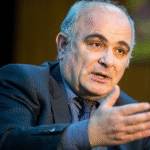The Medical and Civil Rights Professional Association of Doctors (MCPA) has raised serious concerns over the alleged reintroduction of a batch of intravenous immunoglobulin (IVIG) that was permanently banned last year due to safety concerns.
MCPA President Dr. Chamal Sanjeewa demanded an immediate explanation from the Ministry of Health, warning that the move could severely erode public trust in the country’s drug regulatory system.
Dr. Sanjeewa referred to a previous controversy involving the importation of substandard IVIG by a private company during the tenure of a former Health Minister. He said that during the broader investigation, another IVIG product—imported by a second company—was also flagged, prompting a separate probe by the Criminal Investigation Department (CID).
“The CID investigation confirmed that a patient in Trincomalee died after receiving this IVIG,” he said.
Following that incident, the Health Ministry’s Drug Risk Assessment Subcommittee conducted laboratory testing on four samples from the suspect batch.
According to Dr. Sanjeewa, the results showed bacterial toxins and visible contaminants.
This led to the Ministry of Health officially banning the IVIG stock on October 23, 2024, through Circular 2024/41 issued by the Medical Supplies Division (MSD).
However, the MCPA now alleges that the same IVIG batch has been reintroduced for hospital use.
“According to the MSD’s drug database, hospitals have been instructed to re-use this IVIG. This is extremely troubling,” Dr. Sanjeewa said.
He further alleged that this is not an isolated case.
“This is part of a disturbing trend where drugs previously banned by the National Medicines Regulatory Authority (NMRA) are later approved for use again, often based on foreign laboratory reports commissioned and paid for by the same pharmaceutical importers.”
Dr. Sanjeewa warned that such practices undermine confidence in the healthcare system and called on the Health Ministry to disclose the rationale behind reauthorizing the use of the previously banned batch.
“The public has a right to know how such a decision was made, especially when human lives are at stake,” he added.











Leave a comment